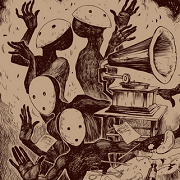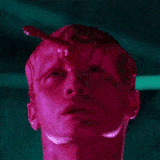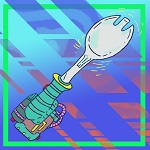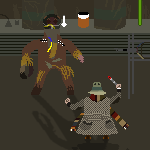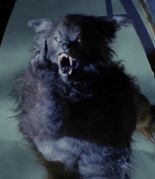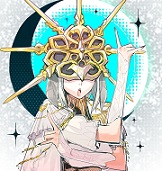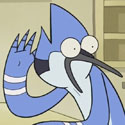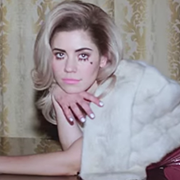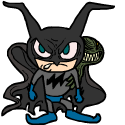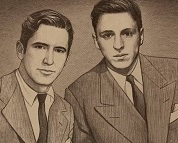|
How solid is this cycle of abuse actually? It is assumed to be true but I've never heard of any study testing the hypothesis. I'm mainly wondering because it sort of turns victims into pre-criminals and I hope there is a good reason for this.
|
|
|
|

|
| # ? May 16, 2024 00:59 |
|
Stepping outside my role as the wacky purveyor of theories, I'll speak briefly on this matter. Many survivors of abuse - particularly those who never received treatment for what happened to them or who never were able to talk to others about what happened to them - have a certain likelihood of trying to assert a degree of control over what happened to them by recreating similar events, but with themselves in the powerful role, i.e. as the abuser. This is as true of physical trauma as it is of sexual trauma. I should add that I've always felt one of the reasons why men tend to be active abusers to SUCH a higher degree than woman (especially when it comes to the sexual abuse of children) has to do with just how taboo it is in American culture (and most of the rest of the world) to even talk about children being sexually abused - let alone for a male child (the vast majority of whom are heterosexual and very concerned about an image of masculinity) to actually admit in front of other people - or just a person - that such a thing happened to them. If they're lucky, maybe they'll be able to talk about in their adult life seek treatment for it. I was a male who was sexually abused when very young, and it took me 20 years. It's not something that's pleasant to talk about - what's pleasant is shoving it to the recesses of your brain and forgetting it ever happened and trying to live your life as if it never happened, which is what most people do. Some of them turn into abusers in turn, some don't. Honestly, most victims of child sexual abuse tend to act out very stereotypically like, well, Laura Palmer in FWWM. They almost always fall into substance abuse (alcoholism or drug abuse usually both) and it's generally accepted that they go in one of two directions sexually, either becoming extremely promiscuous or distancing themselves entirely from sex and intimacy and even touch. All of those more or less falls into the category of PTSD. The medical community actually knows a fair amount of trauma and the nature of trauma and how to treat it, but not a huge amount of that info has yet made it to the public sphere and lots of half-truths and semi-myths still swirl around the term.
|
|
|
|
Magic Hate Ball posted:It symbolizes other, unrelated horses. Layers upon layers man. https://www.youtube.com/watch?v=U5t5mzRGf_M
|
|
|
|
Oh, and I just wanted to briefly make a note about this whole issue of analyzing Lynch, and how far one should go. One of the things I have *always* loved about Lynch's films is that... Not everything you need to understand the story is necessarily even contained within the film. There is this 'rule' in film or television - and it's a rule that has sort of been developed into LOST-type shows at some point - which is that you need to contain everything needed to fully comprehend what's going on within the narrative or the episode or the film itself. Meaning that there would be "clues", thematic or otherwise, that relate to the main mystery and supposedly perhaps "mean something" specific, Actually, I felt like Lynch parodied this nonsense perfectly (and pre-emptively with regard to all the future shows that would rip off Twin Peaks-style mythology) with the Dancing Girl Lil at the start of FWWM. With the changed thread being code for drugs and the sour look on her face meaning the local cops won't be happy to see them, and so on... Of course, this is also where we first see "Blue Rose", and I honestly think the meaning of that should be pretty drat obvious by now. And even back then, it was fairly obvious. Anyway, what I'm getting at is that it's not that Lynch doesn't *want* us to analyze the meaning, it's that he doesn't believe in art having.... Coded messages and nonsense such as that. I recall an interview Lynch gave where he said something very insightful, I felt, and since I can't find it I'll just paraphrase what he said: "The film is the thing, really. You spend all this time working in the medium of sights and sounds and feeling and emotions and pacing, and what's so incredible about film is that it allows you to communicate things you could never communicate through words. So it drives me insane that after I spend all this creating this thing, this film... After seeing it, it's like people immediately want to ask me "what does it mean?" and they want me to take all this stuff I just communicated through the medium of film, and break it down and simplify it into the medium of words. Well, that just seems ridiculous to me, and I couldn't do it if I wanted to." But the context of this discussion is how he loves that his films can mean such disparate things to so many different people, and that he feels many people understand and relate to his work on a level that transcends language - and I would have to agree with him.
|
|
|
|
Reminds me how many people think of Eraserhead as this totally baffling art film with obfuscated themes and such when in fact it's kind of the most basic poo poo ever, just told in a unique way.
|
|
|
|
Hasn't Lynch said analyzing his stuff is silly because he films things to create a mood and most of the time that means putting weird stuff in just to throw people off balance? Like how he had Hawk wear oven mitts to hold a bucket of rocks, and when the actor asked him what the meaning of it was Lynch told him, "I just wanted to make you wear oven mitts."
|
|
|
|
Solice Kirsk posted:Hasn't Lynch said analyzing his stuff is silly because he films things to create a mood and most of the time that means putting weird stuff in just to throw people off balance? Like how he had Hawk wear oven mitts to hold a bucket of rocks, and when the actor asked him what the meaning of it was Lynch told him, "I just wanted to make you wear oven mitts." Well - I don't entirely agree with this, because I do not view the vast majority of Lynch's work as "silly", even if there were some silly things about Twin Peaks. I also don't necessarily Lynch would have the patience to explain absolutely everything to the actors when he's basically operating on intuition himself. Intuition, I might add, is neither silly nor random. Like having Hawk wear the oven mitts - I know *exactly* why Dale asked him to wear those mitts, it makes absolutely perfect sense to me (and I assume to Lynch as well) and it was not done for the purposes of silliness. It's because Dale Cooper believes in energy and various metaphysical concepts. When practicing an art/exercise that involves "mind-body coordination operating hand-in-hand with the deepest level of intuition" one would not the vibrations/electricity coming from Hawk's body interrupting the energy of the rocks themselves, which must have no intuitive/spiritual charge until Dale picks it up and focuses on the individual. Well, that's why it made perfect sense to me, anyway.
|
|
|
|
Bob is both a literal entity, AND the personification of the damage that the negative side of our own humanity is capable of. In the world of David Lynch he is able to fulfill both of those roles at the same time. Much like King's IT(someone else brought that up earlier), his influence extends far beyond the literal, he seems to exist anywhere there is human suffering, and yet he can manifest himself in a physical way in very specific places and times. How exactly it all works in a technical plot sense is probably not worth dissecting, but I think it would be a mistake to go all-in on either the symbolic side or the literal side. That's at the core of what makes him so powerful, he holds sway over both.
|
|
|
|
I am excited for more Twin Peaks which will actually run longer than the new season of GoT.
|
|
|
|
Been watching the original series to make sense of the new one. I doubt if my reading is original. Probably total trash. I read the supernatural elements of Twin Peaks as purely the subjective reality of the characters as they try to make sense of the plot details of their own lives. Just as they absorb, project and enact soap-opera tropes/settings to help them maintain their fantasies of the inherent goodness of their town, they rely on visions of the supernatural to disassociate themselves and each other from the evil that human frailty to temptation will inevitable cause. I think a successful reading of Twin Peaks needs to explain what was wrong in Agent Cooper's character that resulted in his apparent possession by BOB at the finale of S2. And I think it happened because Cooper felt he did Bad Things out in the woods. A key line of dialogue is from Major Briggs, that his greatest fear is that love is not enough. In this case, Briggs was referring to guiding his son into a good life. And that illustrates the inseperability of love and fear in Twin Peaks and the harm it causes. We see this earlier when Brigg's authorative expressions of love for his son drives his rebellion (like slapping him at the dinner table), and only seems to have had a positive effect in a later scene at the diner when Briggs expresses his love without fear. Specifically, at the diner Briggs has expressed his love without fear that he might yet be harmed by that love, happily accepts whatever pain for himself may result from that love, and allows his son the freedom to make his own mistakes. Briggs is still afraid, but doesn't allow that fear to constrain his son in a way that will only cause bad behaviour. The important distinction between Briggs and Cooper is that Briggs does not require events in his son's life to in order to validate his preferred identity as a good father. But Cooper needs to save the girl, or else all else fails, including his own identity. The final Red Room scene where Cooper meets his doppelganger is Cooper's dream in the hotel as he attempts to understand whatever happened out there in the woods with Earle and Annie. Either Cooper killed Windom Earle in the woods to protect Annie but failed to protect her from some form of harm, or Earle killed Annie and Cooper murdered him in response. Cooper then struggled to reconcile that with his self-image, because either he killed Earle in circumstances that wouldn't hold up to the standards of the FBI, or he failed to be again like the white knight that rescued Audrey. Cooper is the perfect manifestation of an ideal Authority who will always protect us. Cooper wouldn't straight-up murder a guy out of fear/rage, right? Failing to be that person is a ruinous defeat for Cooper. After that, he needed to disassociate himself from his original sense of self, hence drawing on Leland's fantasy to imagine that it was actually BOB who killed Earle. And so, BadCooper was born. A more extreme interpretation would be that in a moment of disassociation after killing Earle, Cooper also harmed Annie directly. Either way, the old Cooper is gone forever and can never come back. In the new series, Dougie does not exist except as a dream in BadCoopers mind. Dougie is the only way BadCooper can plausibly identify with any part of himself as a Good Person. BadCooper is imagining Dougie in situtations that BadCooper has personal experience of doing evil in, and is haunted by the vision of what the remaining good parts of himself would have done differently. For example, BadCooper scammed a casino and got a casino manager exiled/killed. Possibly the casino worker was in on the deal but got screwed by BadCooper. He is then imagining that same casino manager in the penthouse with the red square message arranging the murder of Dougie. But Dougie's unkillability in the dreamworld represents some persistent faith inside BadCooper that he is still unable to shake. The incompetence of the hitmen represents a reluctance on the part of BadCooper to completely extinguish any idea of goodness. Twin Peaks is about good people haunted by their potential for evil. The Return is about an evil villain haunted by his potential for goodness.
|
|
|
|
And the Rugrats are actually all dead and just Angelica's hallucinations.
|
|
|
|
I don't understand how people can go to those lengths to ignore what's on screen.
|
|
|
|
It's an interesting interpretation, though I'm not sure I agree with it.
|
|
|
|
Yeah, it's an interesting and fair read. You could easily watch the show with that in mind, and have it make sense. It's pretty clear the Lodges/supernatural poo poo in the show is more literal and real than that, but BOB does represent the evil in people so if having it all be metaphoric and not real is your jam, go for it. Though it gets a bit iffy with Coop's wild ride in S3. In general, Twin Peaks is far more literal than any of Lynch's other stuff. And even that stuff is pretty literal 75% of the time. There's more ambiguity for readings and meanings in his movie work than this, at any rate. Even this season imho. Again, we musn't forget Mark Frost also worked on this. Twin Peaks has always been pretty straightforward in what it's about. There's a little ambiguity and questions left unanswered here and there, sure, but not much. It's super fun reading everyone's crazy ideas, though. I'm more of a 'let the experience wash over me, maybe analyze it a little when it's done' type of Lynch viewer.
|
|
|
|
That's a very interesting post that I enjoyed, but absolutely 100% not a valid reading of the show as it exists
|
|
|
|
I agree that it's not a certainly correct reading, and may well be falsified by later episodes. But you can't particularly trust the plot details in Twin Peaks, because you can't particularly trust the people in Twin Peaks. Not even Cooper. But I 100% stand by the idea that a successful reading of Twin Peaks needs to identify that there's something wrong with Cooper, some dimension to his pre-existing character that enables his fall at the climax. Remember that Cooper was willing to surrender his soul in servitude to Earle as a price to save Annie. And in the context of this show, that is not necessarily a good thing. For example; Albert, the hatchet-man and nay-sayer in the fight against violence that he is, would never have made such a mistake. EDIT: I'm trying to say, the audience's uncritical acceptance of Cooper as a good guy superhero is actually a bad thing that deserves to be criticised. Cooper's uncritical perception of his own goodness conceals dramatic flaws to which he remains blinded and unable to guard against. Corsec fucked around with this message at 17:06 on Jun 23, 2017 |
|
|
|
That was a really interesting take, Corsec, thanks for sharing it! If we accept the reality of the mystical aspects displayed, Dougie's (potential) recovery into what Coop was represents a journey of healing and introspection through which he can accept his original flaws? He can't ever become that super-hero he supposedly was, having spent 25 years talking with incomprehensible apparitions, but what comes out of the process is more attune with the reality of himself. The Lodges are supposed to be the essence of spiritual extremes, and Coop has to face it all to become a 'whole' man. Or, he fails / has already failed and we're witnessing a tragedy of some sort unfold. Time will tell, and we're not even half-way through
|
|
|
|
Escobarbarian posted:Reminds me how many people think of Eraserhead as this totally baffling art film with obfuscated themes and such when in fact it's kind of the most basic poo poo ever, just told in a unique way. Things like the dinner with the family are great though, you don't have to take that scene at face value but it perfectly captures how uncomfortable that setting that can be.
|
|
|
|
Its an interesting read indeed and I agree with a good part of it. But I cant rationalize half of the current season with we consider Dougie a "dream"
|
|
|
|
It definitely fits seasons 1+2 more than 3. With Lynch directing all episodes, rather than a few, it's hard to deny everything Coop is experiencing is actually happening. Especially with the story expanding so far out of Twin Peaks itself and touching so many different people. e: at any rate I really enjoyed reading that take!
|
|
|
|
Corsec posted:Either Cooper killed Windom Earle in the woods to protect Annie but failed to protect her from some form of harm, or Earle killed Annie and Cooper murdered him in response. Cooper then struggled to reconcile that with his self-image, because either he killed Earle in circumstances that wouldn't hold up to the standards of the FBI, or he failed to be again like the white knight that rescued Audrey. Cooper is the perfect manifestation of an ideal Authority who will always protect us. Cooper wouldn't straight-up murder a guy out of fear/rage, right? Failing to be that person is a ruinous defeat for Cooper. After that, he needed to disassociate himself from his original sense of self, hence drawing on Leland's fantasy to imagine that it was actually BOB who killed Earle. And so, BadCooper was born. I kind of agreed with your analysis up to this point. However, there is straight up no indication that Cooper harms anyone. Inside the Lodge, he notices that he has been stabbed, and follows his own blood trail to Earle who demands Cooper's soul. Coop willingly gives it to him in exchange for Annie. Cue Cooper getting stabbed. There is no struggle here, and BOB doesn't show up until all of this is already over. If anything, Cooper's failure is a lot more abstract than what you imply. The entire exchange with Earle basically goes according to Cooper's plan. He doesn't betray his ideals or falter in his conviction, but from the moment BOB appears he's decidedly up against more than he can handle. It's not entirely clear to me whether the doppelganger really has such a clear cut real world analogy as Leland's possession. You can't really say, bad Coop is a metaphor for childhood trauma, for example. Elias_Maluco posted:Its an interesting read indeed and I agree with a good part of it. But I cant rationalize half of the current season with we consider Dougie a "dream" Yeah, I'd argue it's pretty much impossible to read Twin Peaks in a completely literal fashion. There are simply some things that can't be explained without magic. How else did Laura end up writing those pages about Cooper and Annie? If Dougie is a dream, then he is simultaneously also real. We'd just have to accept the contradiction.
|
|
|
|
eSporks posted:Eraserhead has some great surrealism that serves to instill a particular mood or theme, and that I enjoy. The thing i don't really enjoy understand is the girl in the radiator. I have no idea what its supposed to mean, and it feels like its weird just for weirdness sake. She's an ideal woman that Henry imagines, unlike his deranged fiance who he's scared of and the creepy woman he lusts after. She represents kindness, someone who loves and cares from him, but she also represents optimism and an idealized life. She sings songs of Heaven with him. She crushes the gross sperm-worms that look like Henry's deformed child and giggles, unfazed by the ugliness. And in the end, Henry is able to cling to his hope. There's a lot of ways she can be interpreted, but that's the easiest.
|
|
|
|
Why are her cheeks so weird, though? That part really freaks me out.
|
|
|
|
I looked up some stuff about horses! Apparently in Tibetian Buddhism there's something called a "wind horse" that represents well-being or good fortune. Pale horse of death also seems like it would fit though.
|
|
|
|
Sarah Palmer only ever sees it before BOB kills. Seems pretty straight forward.
|
|
|
|
KillerQueen posted:I looked up some stuff about horses! Apparently in Tibetian Buddhism there's something called a "wind horse" that represents well-being or good fortune. "White Horse - linked to instinct, purity and the drive of the physical body to release powerful and emotional forces, like rage with ensuing chaos and destruction. " -- excerpt from The Subconscious Psychosis of Dreams Rob Zombie used(or completely made up?) this quote in Halloween 2 and I think the one in Twin Peaks is probably pretty similar.
|
|
|
|
esperterra posted:Sarah Palmer only ever sees it before BOB kills. Seems pretty straight forward. It's also seen in the Red Room after the curtains lift, right? Perhaps that presages the deaths of the young couple.
|
|
|
|
KillerQueen posted:Did the original series ever explain the horse? that was windom earle and leo johnson in a costume
|
|
|
|
TheMaestroso posted:It's also seen in the Red Room after the curtains lift, right? Perhaps that presages the deaths of the young couple. It shows up in the Red Room in Episode 1 of the new season when the floors are expanding (?), and it's in Laura's dreams and in the red room at the end of FWWM. Basebf555 posted:"White Horse - linked to instinct, purity and the drive of the physical body to release powerful and emotional forces, like rage with ensuing chaos and destruction. " Something like this as well, but I think it can mean hope in some instances (the end of FWWM)
|
|
|
|
TheMaestroso posted:It's also seen in the Red Room after the curtains lift, right? Perhaps that presages the deaths of the young couple. See that's the scene I'm most curious about. Like the wind blows and the curtains are pulled back and there's just darkness...and that goldurn horse and I don't know why.
|
|
|
|
KillerQueen posted:See that's the scene I'm most curious about. Like the wind blows and the curtains are pulled back and there's just darkness...and that goldurn horse and I don't know why.
|
|
|
|
nopants posted:that was windom earle and leo johnson in a costume
|
|
|
|
The white horse symbolizes death, cocaine, and that Deftones album.
|
|
|
|
And More posted:I kind of agreed with your analysis up to this point. However, there is straight up no indication that Cooper harms anyone. Inside the Lodge, he notices that he has been stabbed, and follows his own blood trail to Earle who demands Cooper's soul. Coop willingly gives it to him in exchange for Annie. Cue Cooper getting stabbed. There is no struggle here, and BOB doesn't show up until all of this is already over. Well, I think Cooper's last visit to the lodge is his retrospective dream after the traumatic event in the woods. It's a failed attempt to reinterpret actual events in the woods in a way that can sustain his prior identity. So, of course it would be an attempt to maintain Cooper's sense of innocence and protect himself by misrepresentating how any harm happened to Annie or Earle. The intial stages (until the poisoned coffee) of the dream is what Cooper wants and attempts to believe, but can't successfully force himself to accept. The later stages of the dream show the collapse of that attempt under internal psychological pressure. His self-doubt is planted by his guilt over Caroline Earle's murder. The non-subjective reality that I think happened is Cooper killed Earle and maybe harmed Annie or allowed her to come to harm. Cooper's determination to personally experience only the potential for good is shown in his characterization, where he insists on acting as if every coffe he ever tastes is somehow the best coffe he has ever tasted. But real coffee isn't that good or that consistent. In the dream, we see represented his failure to believe in his own lies when he finds that the coffee is poisoned by BOB. But he needed to 'properly' appreciate the coffee to remain himself. This starts his disassociation and predicts his failure to maintain his identity. He then has visions of Annie in the context of Caroline's murder and is scared away by a vengeful, screaming Laura Palmer who represents the guilt that prevents him from accepting the dreamworld's lie. The guilt over Caroline and fear of it happening again to Annie may have drove him to a violent act he cannot accept and cannot fully attribute to his prior self. And if Cooper harmed Annie as well as Earle, that would only intensify his disassociation. Perhaps in that moment he saw Annie as Caroline (like shown the final dream) and in his attempt to reconnect did Bad Things to her. Just like Leland's desire to reconnect with Laura drove him to do Bad Things to Maddie. So I'd say that BOB becomes a symbolic representation of the parts of Cooper that he disassociates from, can't willingly reconcile with but cannot ever escape. BadCooper emerges as those parts take control over a shattered identity and remake it. Dougie is the remaining sense of innocence of BadCooper that he can't exterminate. And More posted:Yeah, I'd argue it's pretty much impossible to read Twin Peaks in a completely literal fashion. There are simply some things that can't be explained without magic. How else did Laura end up writing those pages about Cooper and Annie? If Dougie is a dream, then he is simultaneously also real. We'd just have to accept the contradiction. I can accept this because it's difficult to reconcile my reading with Laura's letter in the bathroom stall. Or why the changeover must occur after exactly 25 years. Or BadCooper's phone call affecting the power grid. These things don't directly seem to be obviously presented in the context of anyone's dream or memory. Like, maybe we can suppose that BadCooper is imagining events in the town of Twin Peaks as well as Dougie in Las Vegas but that's really, really stretching with the available text. I think Dougie is 'real' as the parts of BadCooper that were not totally devastated and undermined by the trauma at the end of S2. But there's not really much left to be Dougie, is there? Dougie is then placed in a dreamworld imagined by BadCooper. I'm comfortable with a subjective reading of the supernatural in Twin Peaks because it's subjective world is so heavily determining of the real world through perception and behaviour that it makes sense to blur any possible boundary between the two in plot as well as presentation. The characters have little recourse to anything but dreams and fantasies. And I think this confounds a purely supernatural interpretation. In Mulholland Drive, if you only watched the first half up to the Club Silencio scene, it'd be really tough to interpret it as a dream since that interpretation requires the latter half of the film to contextualise the first half. So maybe future episodes will support my reading. But it could just as easily falsify my reading, so whatever I guess. We'll see. Corsec fucked around with this message at 20:22 on Jun 23, 2017 |
|
|
|
Escobarbarian posted:That's a very interesting post that I enjoyed, but absolutely 100% not a valid reading of the show as it exists Here's the thing: I think that a work like Twin Peaks can operate at more than one level. I know not everyone in TVIV is a fan of death of the author, but there's enough complexity here that there can be the literal narrative reading that is objectively true, and then a number of layered metaphorical readings on top of it. Literally BOB is some kind of real and distinct entity that commits acts of malice to nourish himself and his allies. That's a literal and objective reading of the information in the show. On top of that there is a layered metaphor of BOB as an incarnation of the abuse that is handed down through a family. There is also a reading of him as the pleasant lies we tell ourselves to obscure the painful truth (Leland believing that BOB controls his actions 100%, Laura talking about having an exciting fling with BOB rather than being assaulted by her father, etc). There's also a reading of him, especially in seasons 3, as a representative of the innate human urge to inflict suffering or harm others to our own benefit. I think a way this thread gets kinda crossed up at times is that we have some folks who are mostly trying to suss out the literal narrative truth of the show (which is fun and cool), but others who are more about exploring all the different metaphorical layers in the show (which is also good and cool), and the two groups keep misinterpreting each other's posts as attacking their own when there's really just two parallel discussions happening. The literal mythological narrative of the show is interesting and I'm enjoying seeing it fleshed out, but for me the other layers of meaning are more interesting, especially as someone with a lot of friends and family who have gone through trauma I see reflected in the show. Why am I quoting your post? I think saying "100% not a valid reading of the show" is overstating things a bit. You're right that it doesn't address the literal narrative of the show, but partial figurative readings are still valid. The show has a lot to say that is not necessarily 100% in line with the literal depictions. If this thread could avoid taking this stark black-and-white views of one another's ideas I think that would be pretty great.
|
|
|
|
Lord Krangdar posted:The white horse symbolizes death, cocaine, and that Deftones album.  "So why don't you run, so why don't you run So why don't you run back to Lodge"
|
|
|
|
Corsec posted:In Mulholland Drive, if you only watched the first half up to the Club Silencio scene, it'd be really tough to interpret it as a dream since that interpretation requires the latter half of the film to contextualise the first half. I'd say that's mostly true but on the other hand isn't one of the first shots a POV shot from someone's perspective as they lay their face down on their pillow, before fading into the rest of the film?
|
|
|
|
How 'bout the recurring theme of wives angry/yelling/nagging at their husbands?
|
|
|
|
cis autodrag posted:Now that I'm caught up on this thread, I want to talk about my favorite thing from part 1&2. I just remembered that the lady was Jennifer Jason Leigh, and holy poo poo if that's her only appearance she is being insanely underutilized.
|
|
|
|

|
| # ? May 16, 2024 00:59 |
|
PureRok posted:How 'bout the recurring theme of wives angry/yelling/nagging at their husbands? idk how about the recurring theme of men ruining their relationships with infidelity and lack of trust
|
|
|



